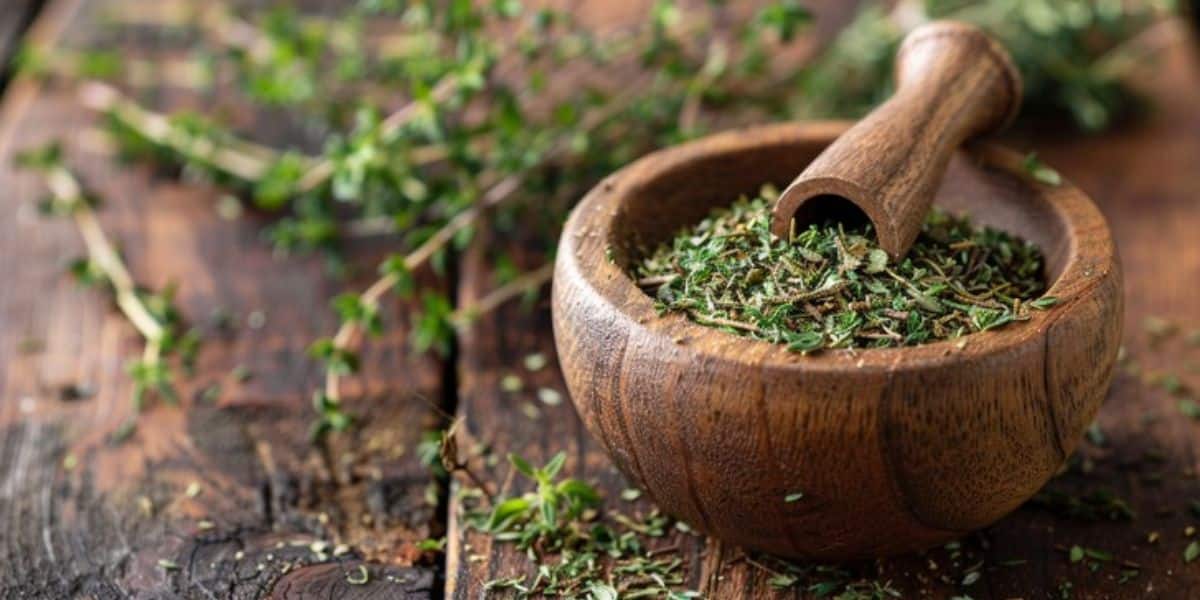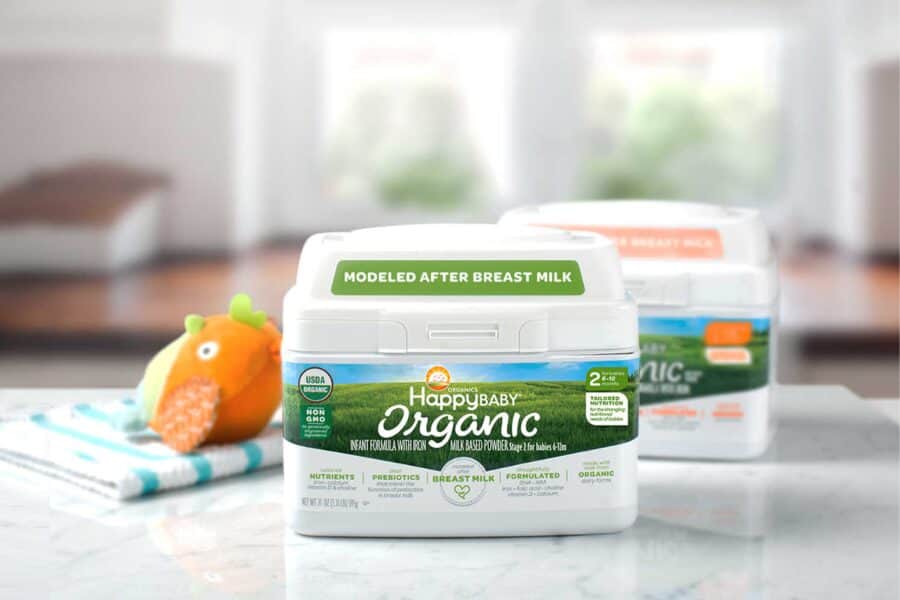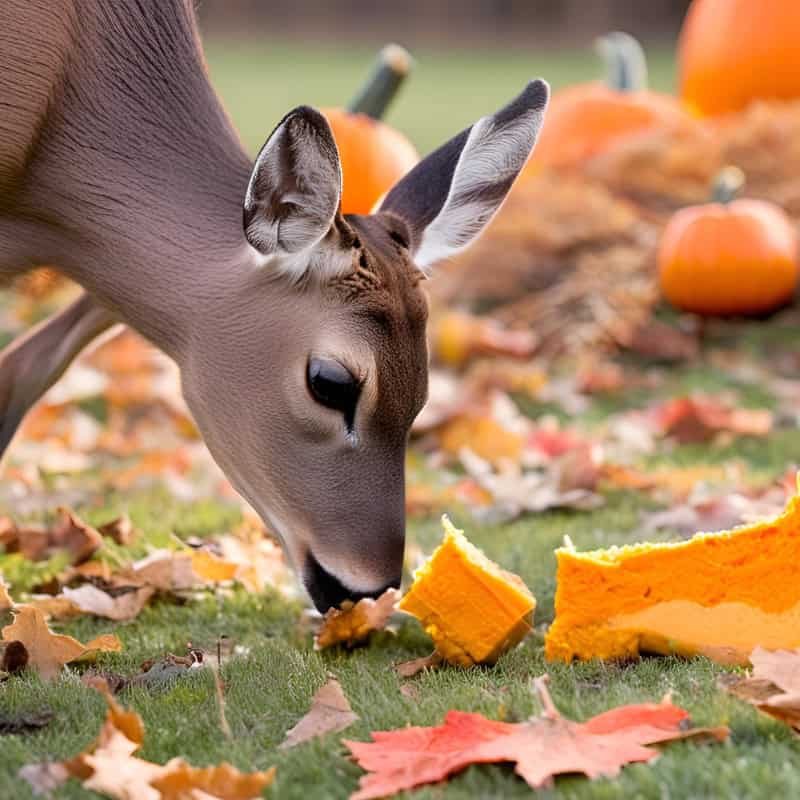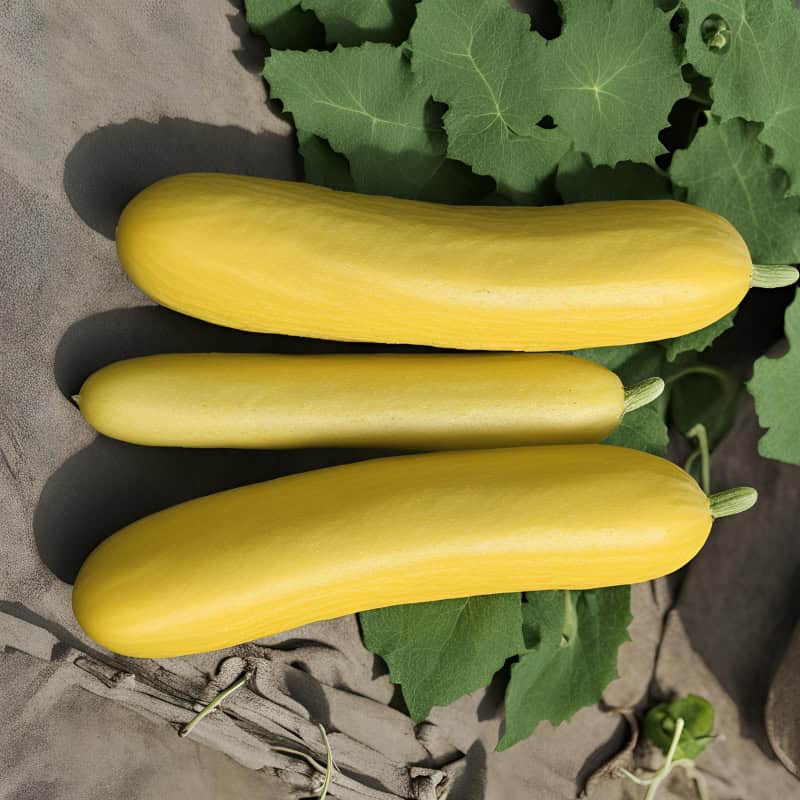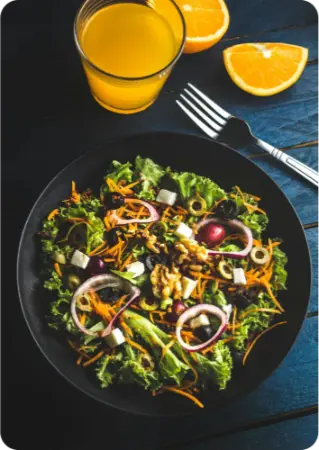Hey conscious hen farmers, ever wondered “Can chickens eat pineapples?” Don’t go around guessing. It’s time to get some facts straight. This tropical fruit isn’t just a tasty treat for humans; it can also be a delightful addition to your chickens’ diet. But before you toss that pineapple chunk into the coop, there are a few things you need to know to ensure it’s a healthy addition to their diet.
Chickens are curious eaters, and introducing new foods to their diet can be both exciting and beneficial. Pineapple, with its sweet and tangy flavor, can offer various nutritional benefits to your flock when added to their diet properly.
In this guide, we’ll learn about everything from the nutritional benefits of pineapple to the best practices for feeding it to your chickens. We’ll discuss how this fruit affects their health, the appropriate serving sizes, and the potential risks of overfeeding.
Whether you’re a seasoned poultry owner or a backyard chicken keeper, this comprehensive guide will help you run a sustainable backyard chicken-keeping operation while occasionally treating your flock to some juicy pineapple.
Without further ado, let’s answer how and why: Can chickens eat pineapples?
Can Chickens Eat Pineapples? Yes or No

The question, “Can I give pineapple to chickens?”, is common among poultry owners. The answer is yes, chickens can eat pineapple. However, like many treats, it should be given in moderation. Pineapple is generally safe for chickens, but there are some considerations to keep in mind to ensure it’s beneficial and not harmful.
To make a better decision on whether chicks can eat pineapple or not, take a look at the nutrients and health benefits of feeding pineapples to chickens.
Nutritional Benefits of Pineapple for Chickens
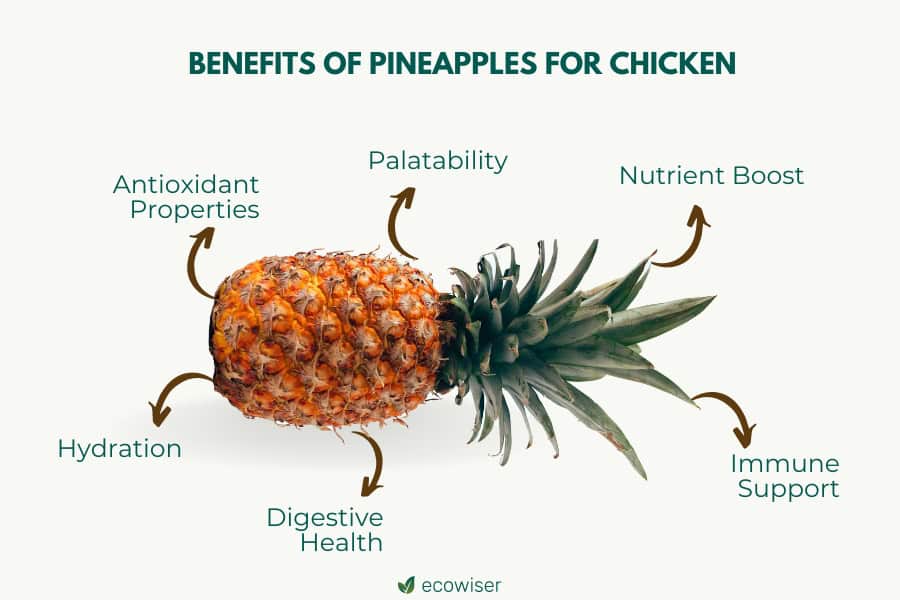
Pineapple isn’t just a tasty treat; it’s packed with nutrients that can benefit your chickens. Here’s a closer look at what makes pineapple a good choice for your flock:
- Vitamins: Pineapple is rich in Vitamin C and Vitamin A, which can help boost your chickens’ immune system and improve their overall health.
- Minerals: This tropical fruit contains essential minerals like calcium and magnesium. Calcium is vital for egg production, especially for laying hens.
- Fiber: The high fiber content in pineapple aids in digestion, helping to keep your chickens’ digestive systems healthy.
- Enzymes: Pineapple has bromelain, an enzyme that helps break down proteins in the gut. This makes it easier for chickens to digest their food and can improve their overall digestion.
By incorporating pineapple into their diet, your chickens can enjoy these nutritional benefits, enhancing their overall well-being. Let’s look at how the nutrients in pineapple change the well-being of chickens and why it’s a good idea to feed pineapple to chickens in moderation.
How Pineapple Affects Chickens?
When fed in moderation, pineapple can have several positive effects on your chickens. Here are some ways pineapple can benefit your flock:
- Enhanced Energy Levels: The natural sugars in pineapple provide a quick energy boost, which can be particularly useful for active chickens.
- Improved Feather Quality: The vitamins and minerals in pineapple contribute to healthier, shinier feathers.
- Digestive Health: Thanks to its high fiber content, pineapple can help keep your chickens’ digestive systems running smoothly.
- Egg Production: Some chicken owners have noted improvements in egg quality and production when their hens are fed a balanced diet that includes fruits like pineapple.
However, it’s important to monitor how your chickens react to pineapple and adjust the quantity accordingly to avoid any adverse effects.
Don’t worry, here’s the answer to how to feed pineapples to chickens and how many times can I give pineapples to chickens.
Recommended Serving Size and Frequency of Pineapple For Chickens

Feeding pineapple to chickens should be done with care. Here are some guidelines to help you determine the right amount and frequency:
- Serving Size: A small amount of pineapple, cut into bite-sized pieces, is sufficient. For example, a few small chunks per chicken is a good starting point.
- Frequency: Pineapple should be an occasional treat rather than a regular part of their diet. Once or twice a week is plenty to provide the benefits without overdoing it.
And don’t forget about the 90/10 rule. Treats like pineapples for chickens should only make 10% of their daily feed. Remember, moderation is key to ensuring that your chickens enjoy the benefits of pineapple without any negative side effects.
However, as a chicken owner, you must be aware of the potential side effects of overfeeding pineapples to chicks. Let’s cover this aspect of giving pineapples to chickens.
Potential Risks of Overfeeding Pineapple
While pineapple is safe for chickens, overfeeding can lead to several problems. Here are some risks to be aware of:
- Digestive Issues: Too much pineapple can cause digestive problems like diarrhea or an upset stomach due to its high sugar and fiber content.
- Nutritional Imbalance: Overfeeding any single type of food, including pineapple, can lead to a nutritional imbalance. Chickens need a well-rounded diet to stay healthy.
- Allergic Reactions: Some chickens might be allergic to pineapple, leading to skin irritation, breathing problems, or even severe reactions like anaphylaxis. It’s crucial to watch your chickens closely for any signs of allergies after you start feeding them pineapple.
So, keep an eye out for any signs of distress in your chickens after feeding them pineapple. If you notice changes in behavior or health issues, it might be a sign that they’re getting too much.
Now, you are thinking, can chickens eat whole pineapples? No, definitely not. The hard shell of pineapple is inedible. So, how can chickens eat pineapple safely? Well, there are several ways to give pineapples to chickens. Let’s see some of them.
Best Practices for Feeding Pineapple to Chickens
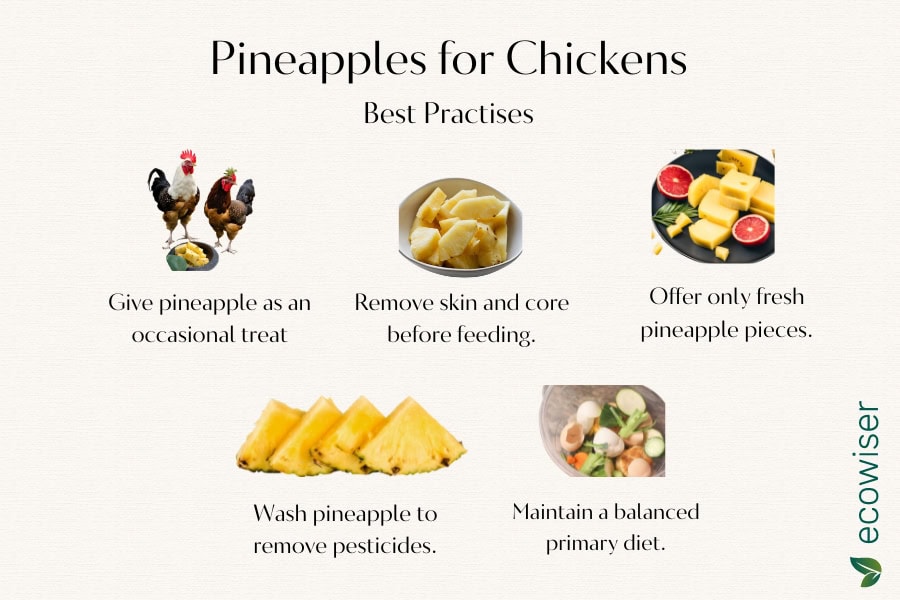
To safely add pineapple to your chickens’ diet, follow these best practices:
- Preparation Tips: Always remove the skin and core of the pineapple. The skin is tough and hard for chickens to digest, while the core is fibrous and can pose a choking hazard.
- Cutting into Pieces: Cut the pineapple into small, manageable pieces to make it easier for your chickens to eat.
- Introducing Pineapple Gradually: Start with a small amount and gradually increase the quantity as you observe how your chickens react. This helps prevent any sudden digestive issues.
- Combining with Other Foods: Balance is crucial. Combine pineapple with other fruits and vegetables to ensure a diverse and balanced diet for your chickens.
If you follow these best practices, you can safely introduce pineapple into your chickens’ diet, allowing them to enjoy the benefits without any negative effects.
Fruits Chickens Can’t Eat
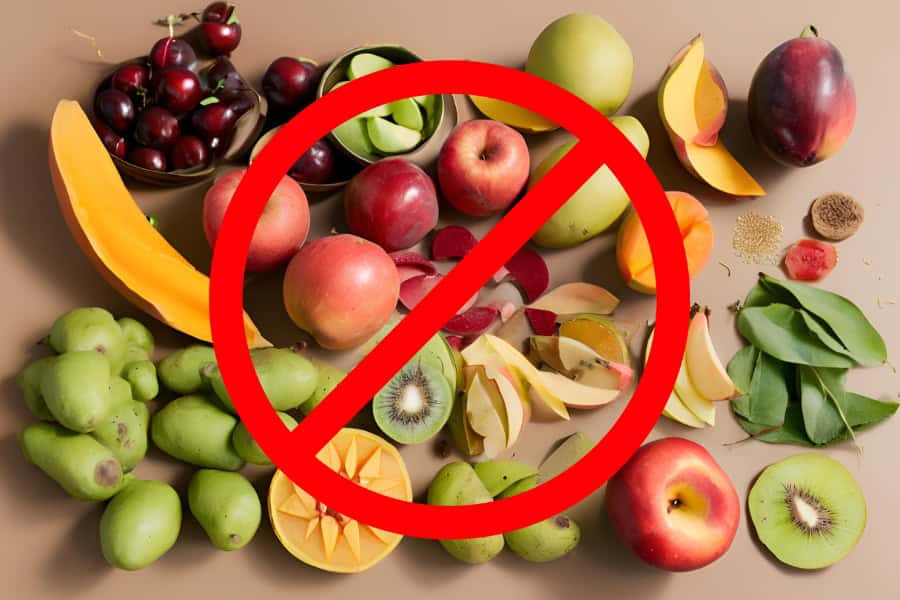
There are several fruits that chickens should avoid due to potential toxicity or harmful effects. Here are some fruits that chickens shouldn’t eat:
Avocado: Avocado contains persin, a toxin that can be harmful and even fatal to chickens, causing respiratory distress, heart failure, and death.
Citrus Fruits: While not toxic, citrus fruits like oranges, lemons, and grapefruits can cause digestive upset and interfere with calcium absorption, which is vital for egg-laying hens.
Green Potatoes and Tomatoes: These contain solanine, a toxin that can cause serious health issues in chickens, including digestive problems, lethargy, and even death.
Unripe or Green Fruits: Unripe or green fruits, such as unripe tomatoes and green potatoes, can contain higher levels of toxins like solanine.
Rhubarb: Rhubarb leaves contain oxalic acid, which is highly toxic to chickens and can cause kidney failure.
Fruit Pits and Seeds: The pits and seeds of fruits like apples, cherries, peaches, and plums contain cyanogenic glycosides, which can release cyanide and be toxic to chickens.
Mango Peels and Pits: While the flesh is generally safe, mango peels and pits can cause digestive issues and potentially contain toxins.
Always ensure that any fruit given to chickens is ripe, properly prepared, and free of any harmful parts like pits and seeds. Moderation is key, as too much fruit can upset their digestive system and lead to imbalanced nutrition.
Ecowiser Promotes Sustainable Chicken Keeping
Promoting sustainable chicken-keeping and feeding pineapple to them involves several strategies that ensure the health and well-being of your chickens while also minimizing the environmental impact of their care. Here’s how you can support sustainable chicken-keeping:
1. Choose local, organic pineapples for your chickens to support farmers and reduce pesticide exposure.
2. Feed pineapples in moderation to avoid digestive issues and waste.
3. Monitor pineapple consumption to maintain a balanced diet.
4. Use pineapple skins and crowns in compost or as natural pest repellents.
5. Provide variety in their diet with fruits, vegetables, grains, and proteins.
6. Explore alternative treats to reduce dependence on pineapple.
7. Share knowledge and encourage sustainable practices.
8. Support local farmers practicing eco-friendly methods.
Implementing these strategies fosters sustainable chicken-keeping, promotes chicken health, and fosters environmental responsibility.
Summing Up!
“Can chickens eat pineapples?” “Can I give pineapples to chickens?” “Can chickens eat whole pineapples?” These questions are understandable, and the answers are complicated.
So, chickens can eat pineapples, but with some care. Pineapple can be a nutritious and tasty treat for your chickens, providing them with essential vitamins, minerals, and fiber. However, it’s important to feed it in moderation and follow best practices to avoid any potential risks. By doing so, you can ensure that your chickens enjoy the benefits of this tropical fruit without compromising their health.
While pineapples are greatly beneficial for the health of chickens, it’s also necessary to learn about other dietary requirements for chickens to ensure a balanced health. Explore more about what you can feed your little birds.
Frequently Asked Questions (FAQs)
1. Can chickens eat pineapples?
Yes, chickens can eat pineapples, but they should be fed in moderation as a treat. Pineapples are a nutritious and tasty addition to a balanced chicken diet, but they should not replace their regular feed.
2. Are there any fruits that chickens can’t eat?
Yes, some fruits are not suitable for chickens. Avoid feeding them citrus fruits like oranges, lemons, and grapefruits, as they can cause digestive issues. Also, avoid feeding them unripe or fermented fruits, as they can be toxic.
3. Can chickens eat pineapple seeds and skins?
No, chickens should not eat pineapple seeds and skins. The seeds are difficult for chickens to digest, and the skins are low in nutritional value. It is recommended to remove the seeds and skins before feeding pineapple to chickens.
4. Do chickens eat bananas?
Yes, chickens can eat bananas, but they should be fed in moderation. Bananas are a good source of potassium and other nutrients, but they are high in sugar and should not be fed as a regular part of a chicken’s diet.


